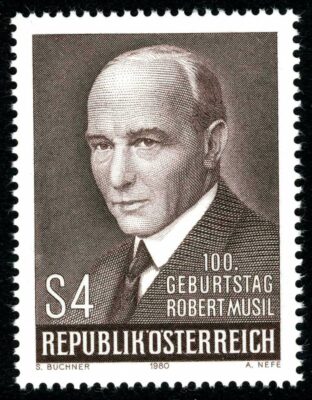I have a few things I have been working on this week that have made it difficult to carve out the time to write a proper post. So in lieu of that, I wanted to share a passage from The Man without Qualities, by Robert Musil. I have been participating in a group reading of the novel that was organized by Merve Emre on twitter. It’s almost parodically a “novel of ideas”—in fact, it truly is parodying the “novel of ideas” even as it exists as one of the finest instances of the form—and so therefore germane to this blog despite it being Austrian. Brian Dillon has also borrowed the word essayism for a book on the history and practice of the essay, but he isn’t American either.
At any rate, here is the passage I wished to reproduce here. It is in a chapter about  the protagonist Ulrich’s life philosophy, which he calls essayism and which has some correspondences, I think, with pragmatism. It is difficult to read the following passage without thinking of not only Musil’s immediate inspiration for much of the philosophy contained in TMWQ—Nietzsche—but also Nietzsche’s great model, Emerson, truly one of the great essayists in world literature in precisely the way that Musil writes about here.
the protagonist Ulrich’s life philosophy, which he calls essayism and which has some correspondences, I think, with pragmatism. It is difficult to read the following passage without thinking of not only Musil’s immediate inspiration for much of the philosophy contained in TMWQ—Nietzsche—but also Nietzsche’s great model, Emerson, truly one of the great essayists in world literature in precisely the way that Musil writes about here.
The accepted translation of “essay” as “attempt” contains only vaguely the essential allusion to the literary model, for an essay is not a provisional or incidental expression of a conviction capable of being elevated to a truth under more favorable circumstances or of being exposed as an error (the only ones of that kind are those articles or treatises, chips from the scholar’s workbench, with which the learned entertain their special public); an essay is rather the unique and unalterable form assumed by a man’s inner life in a decisive thought. Nothing is more foreign to it than the irresponsible and half-baked quality of thought known as subjectivism. Terms like true and false, wise and unwise, are equally inapplicable, and yet the essay is subject to laws that are no less strict for appearing to be delicate and ineffable. There have been more than a few such essayists, masters of the inner hovering life, but there would be no point in naming them. Their domain lies between religion and knowledge, between example and doctrine, between amor intellectualis and poetry; they are saints with and without religion, and sometimes they are also simply men on an adventure who have gone astray.
This is from the translation by Sophie Wilkins, and it really seems terrific to me. Some of the loveliest language in this passage is even, to my ear, an improvement on Musil’s German, although really I am not competent to judge. “Chips from the scholar’s workbench with which the learned entertain their special public” is Englished from “die gelehrte Personen als »Abfälle ihrer Werkstätte« zum besten geben,” and perhaps if you prefer directness and a bit of brutality (“Abfälle” is quite a bit harsher than “chips”) then you’d like to see a more literal translation than the one Wilkins provides, but I find her interpretation more playful and more pleasing. (You can access the whole text in German here
.)
“Masters of the inner hovering life” (“Meister des innerlich schwebenden Lebens”)—wow.

0